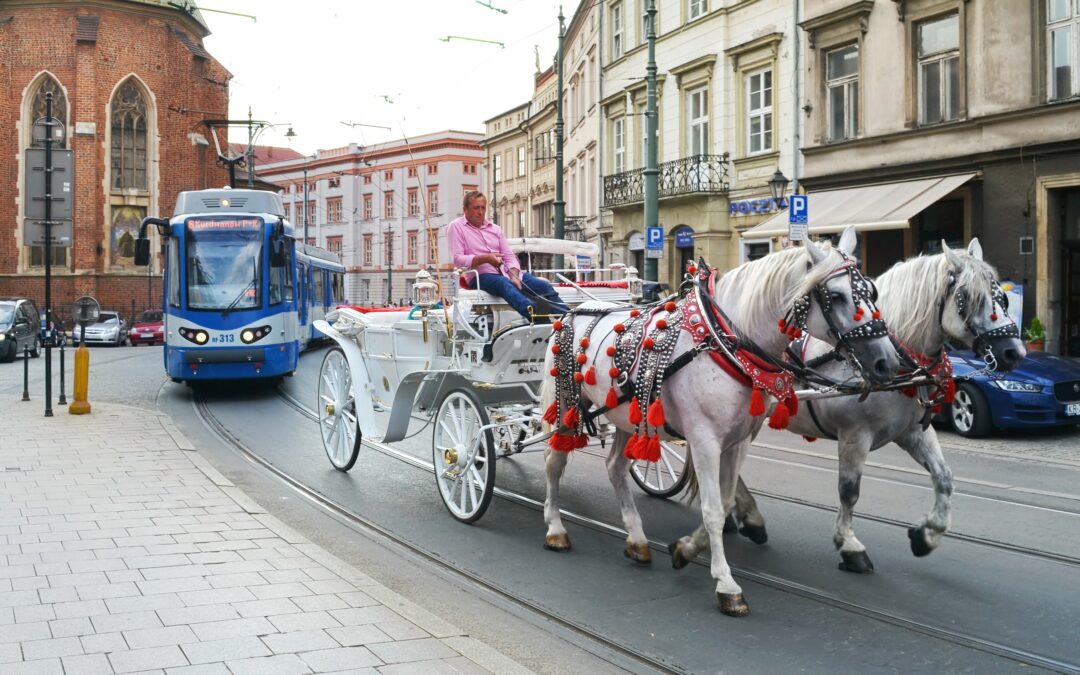Kraków, Poland’s second-largest city, has announced plans to build a metro system, an idea that has long been discussed but has never come to fruition. It hopes that construction of the metro – which would be only the second in Poland – will begin in 2028.
“For years, the people of Kraków have expressed their will for a metro to be built in the city,” said mayor Aleksander Miszalski, who was elected earlier this year. “Starting the construction of the metro is the most important commitment I made to residents during the election campaign.”
#Krakow #metro #rada #BudowaMetra
Rada Naukowo-Techniczna ds. Budowy Metra będzie pełnić kluczową rolę w podejmowaniu decyzji podczas planowania i budowy metra. Dziś zostali zaprezentowani jej członkowie. pic.twitter.com/SVsULYVxZP— Kraków (@krakow_pl) September 16, 2024
The city has formed a council of experts to advise on the project while also establishing cooperation with the company behind Warsaw’s metro system. It intends to publish an environmental impact assessment report, an analysis of the passenger traffic flow, and an economic analysis by the end of this year.
Miszalski also announced that he is “actively considering potential sources of funding” for the project, including state and municipal funds, private investors, as well as funding from the European Union, reports local newspaper Gazeta Krakowska.
If completed, the first line of the Kraków metro would connect the Nowa Huta district in the east with Bronowice in the northwest, running through the historic city centre.
Sorry to interrupt your reading. The article continues below.

Notes from Poland is run by a small editorial team and published by an independent, non-profit foundation that is funded through donations from our readers. We cannot do what we do without your support.
The municipal authorities will be able to use plans prepared by the previous administration to build a “premetro” – a light railway including rapid transit segments through a combination of tunnels and above-ground sections – in the same sections of the city.
Miszalski’s administration has, however, decided to shift away from that project. “We are moving away from thinking about underground trams. We will be pursuing a heavy-type metro project,” explained the mayor.
The first stage of the metro line would cost 3 billion zloty (€702 million) and would span six kilometres from the intersection of Reymonta and Piastowska Streets to Młyńskie Roundabout. The second and third stages would be about 20 kilometres, with estimated construction costs of 10 billion zloty (€2.3 billion).
Kraków nie chce przy budowie metra popełniać błędów, dlatego powołuje liczącą 17 ekspertów Radę Naukowo – Techniczną ds. tej inwestycji. Miastu doradzą https://t.co/eo7EYFPi3I. specjaliści z Warszawy.https://t.co/FcqKrHTiy5
— Wyborcza.pl Kraków (@Wyborcza_Krakow) September 16, 2024
The city aims to start construction in 2028 and has already established a “scientific and technical council” to advise on the project. Each of its 17 experts will be responsible for a different aspect of the investment, including finances, construction, traffic forecasting, cybersecurity, historic preservation and sociological issues.
A team responsible for construction of the metro will be appointed in the fourth quarter of 2024 and around the middle of 2025 a tender for the development of design documentation will be announced.
In 2014, Kraków conducted a referendum, asking its citizens whether they supported the idea of building a metro line in the city. A majority of 55.11% voted in favour of the project.
But the idea encountered obstacles from the provincial conservator of monuments, who in 2019 issued a negative opinion on the location study proposed by the contractor for an underground station located at the intersection of the Dunajewskiego and Karmelicka Streets in the heart of the city.
Three Polish cities have the worst traffic in the world among places with a population below 800,000, finds a new ranking.
In Wrocław, it takes an average of 24 mins 30 seconds to travel 10km in the city centre, followed by Łódź (22:20) and Kraków (21:40) https://t.co/w6lydrkPSf
— Notes from Poland 🇵🇱 (@notesfrompoland) February 16, 2023
The conservator also expressed doubts about the underground route that would go below the historic Planty park and in the vicinity of the Barbican – a medieval fortification – “due to the fact of its proximity to the former city walls, the moat and the protection of the archaeological heritage at this location”.
The idea of building a metro or premetro network was first raised in Kraków in the 1960s, when a conference on the subject was held. The city has increasingly struggled with traffic congestion in recent years, despite its extensive network of buses and trams and increasing bicycle usage.
The first line of Warsaw’s metro was opened in 1995 and reached its full length in 2008. A second line was added in 2015, with a third line planned. In March this year, Warsaw’s mayor, Rafał Trzaskowski, approved funds for “pre-design” work on a fourth line.
Łódź, Poland’s fourth-largest city, is currently building a major underground rail tunnel that is often informally referred to as a “metro”. However, it will operate as an extension of the existing overground rail network rather than as a metro system.
Warsaw has unveiled plans to more than double the size of its metro system by 2050, with the current two lines expanding to five.
The number of stations would rise from 39 to 103, with over half of Varsovians living within 1 km of one (up from 28% now) https://t.co/Lh9Doi25Uz
— Notes from Poland 🇵🇱 (@notesfrompoland) February 14, 2023

Agata Pyka is a former assistant editor at Notes from Poland. She specialises in Central and Eastern European affairs, cybersecurity, and investigative reporting. She holds a master’s degree in political communication from the University of Amsterdam, and her work has appeared in Euractiv, the Balkan Investigative Reporting Network (BIRN), and The European Correspondent, among others.



















